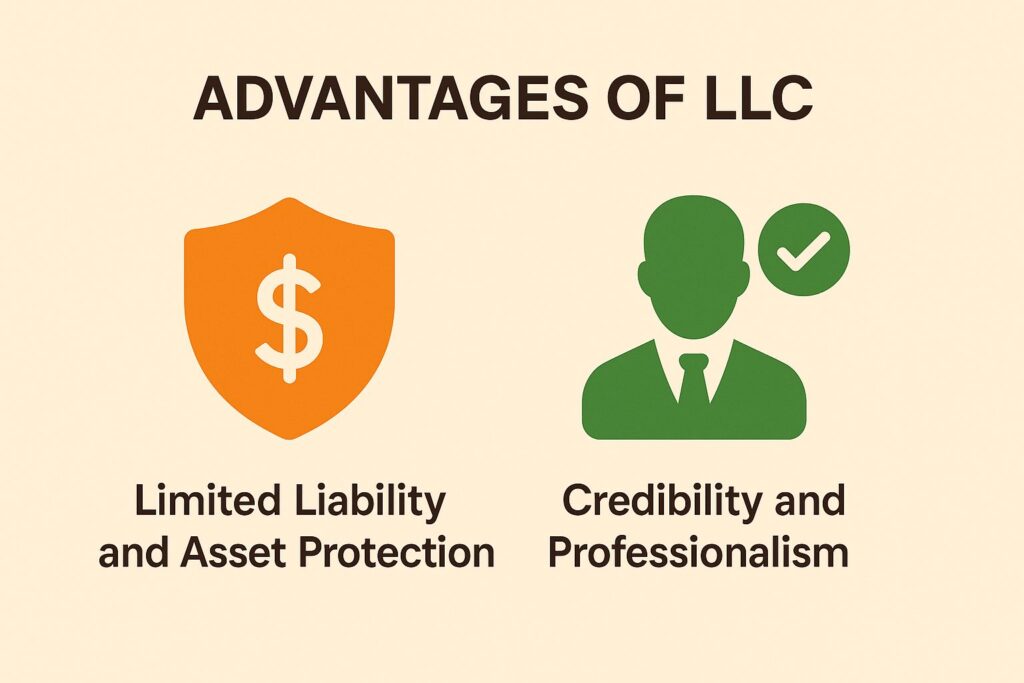
LLC vs Sole Proprietor: What’s Best for New Business Owners?
Starting your own business is thrilling, but choosing the right structure can feel overwhelming. Should you go solo or form an LLC? Your decision impacts your liability, taxes, and credibility. Look at the benefits and downsides of sole proprietorships and LLCs to see what matches your long-term plans and budget. Find the important elements that will guide you to make the right decision for your new business. Let’s explore!
Business Structures for New Business Owners
Knowing the basic differences between business structures such as sole proprietorships and LLCs allows you to make choices that fit your needs, considering your personal liability and liability protection requirements.

Definition of Sole Proprietorship
A sole proprietorship is the simplest business structure, where the owner is personally liable for business debts, leading to potential financial risks.
To set up a sole proprietorship, begin by choosing a unique business name and checking for availability. Then, obtain necessary business permits or licenses, which can often be done online through your local government’s website.
For example, if you’re starting a freelance graphic design business, consider registering for a DBA (Doing Business As) to operate under your brand name.
Keep your finances organized by using tools like QuickBooks for bookkeeping to effectively track income and expenses, thereby managing your personal liability risks.
Definition of LLC
A Limited Liability Company (LLC) offers a hybrid structure, combining the simplicity of a sole proprietorship with the liability protection of a corporation.
Forming an LLC requires you to choose a unique business name and file formation documents, such as Articles of Organization, with your state, usually for a fee ranging from $50 to $500.
One major advantage is limited personal liability, which protects your personal assets from business debts.
LLCs allow for flexible management structures and operational flexibility; you can operate it yourself or appoint managers.
LLCs are becoming more attractive to new business owners because they offer protection and flexibility, allowing one to start a business without the complicated rules of traditional corporations.
Advantages of Sole Proprietorship
Sole proprietorships offer clear benefits, especially because they are easy to set up and come with tax implications, such as self-employment tax benefits, that attract many new business owners.

Simplicity and Ease of Setup
Setting up a sole proprietorship can typically be done in one day, requiring minimal paperwork and no formal business registration in most states.
To get started, check your local government’s website for any necessary permits.
Commonly required permits may include:
- a general business license
- health permits if you’re selling food or services
- zoning permits for specific locations
Registration fees are often under $100. For instance, in California, a basic business license varies by city but is generally affordable. You’ll usually need to complete an application, pay the fee, and potentially publish your business name, which can all be done online, often within hours.
Tax Benefits and Implications
Sole proprietorships allow business income reporting on personal tax returns, simplifying tax filings and potentially lowering income taxes and self-employment tax.
This setup also provides tax benefits, such as the home office deduction, which lets you subtract costs related to your workspace, like utilities and wear and tear.
For instance, if you use a dedicated room in your home solely for business, you can calculate the percentage of your home used for work to determine your deduction.
Business expenses like supplies, travel, and advertising can further reduce taxable income. It’s important to keep detailed records and receipts. Tools like QuickBooks or Expensify can help you track your expenses easily.
Advantages of LLC
LLCs offer certain advantages that help shield from legal responsibility and increase confidence, making them a popular option for those starting new businesses who want legal and asset safety.

Limited Liability and Asset Protection
A key benefit of an LLC is that it protects personal belongings from business debts, ensuring financial safety and strong asset protection.
In an LLC, personal property like your home or savings cannot be targeted in a lawsuit against the business. For example, if a client sues your LLC for negligence, only the assets of the LLC are at risk.
This is very different from sole proprietorships, where personal belongings are at risk for business debts. As a result, if you face litigation while operating as a sole proprietor, your personal belongings could be seized to satisfy a business debt.
This essential distinction highlights the protective benefits an LLC provides.
Credibility and Professionalism
Running your business as an LLC can give it more credibility and business identity, which makes it more appealing to investors and customers than a sole proprietorship.
This increased credibility often translates into tangible benefits, such as easier access to funding. For instance, companies like Techstart LLC secured $500,000 in seed funding, citing their LLC status as a key factor in building investor trust.
Being an LLC can facilitate smoother vendor negotiations, as established firms tend to prefer working with reputable entities. A study showed that 70% of LLC owners felt their business structure positively influenced contract approvals.
Setting up your business as an LLC can help with growth and forming partnerships.
Disadvantages of Sole Proprietorship
Although owning a sole proprietorship can be attractive, it has significant downsides, especially related to personal responsibility and the chance of losing money.
Personal Liability Risks
Sole proprietors face unlimited personal liability, meaning personal assets could be at risk if the business incurs debts or legal issues.
To mitigate these risks, consider acquiring liability insurance, which can protect your personal assets in case of lawsuits or business debts.
For instance, general liability insurance can cover claims of bodily injury or property damage. Forming a limited liability company (LLC) separates personal and business assets, offering further protection.
Regularly review contracts and engage in risk management practices, such as investing in compliance training for employees, to minimize potential legal issues. These steps can help you feel confident and protect your financial security.
Disadvantages of LLC
LLCs have benefits, but they also come with drawbacks, especially because they can be complicated and have ongoing costs that new business owners need to think about.
Complexity and Costs
Forming an LLC involves more paperwork and costs than a sole proprietorship, including state filing fees that can range from $50 to $500.
Along with initial setup fees, ongoing costs can include annual reporting fees, which vary by state. For instance, California requires an $800 annual minimum franchise tax, while Delaware charges $300 for annual reports.
Regularly maintaining your LLC may also necessitate an Operating Agreement, which outlines management structure and member roles.
To manage your tasks easily, think about using tools like LegalZoom or Rocket Lawyer. They provide templates and services to help you with compliance and reduce mistakes.
Key Considerations for New Business Owners
New business owners should think about things like their long-term goals and financial situation when picking a business structure. As part of this planning, understanding how to manage finances effectively can be crucial (our tips to avoid interest on small business credit cards can help mitigate unnecessary expenses).

Long-Term Goals
Knowing your long-term business goals can help you decide if a sole proprietorship or LLC is better for your venture.
For instance, if your goal is to scale quickly and attract outside investors, an LLC offers advantages, such as limited liability and the ability to issue shares.
Conversely, if you’re prioritizing simplicity and lower costs, a sole proprietorship might be sufficient, especially for freelancers or local service providers.
Consider using tools like LegalZoom or Incfile to easily set up your chosen structure while ensuring compliance.
Choosing wisely allows you to align your business structure with your vision for growth and investment potential.
Financial Situations and Decision Factors
Your current financial situation, including income, potential funding options, and business growth strategies, should play a critical role in determining your business structure choice.
A sole proprietorship offers simplicity and direct tax benefits, as business income is reported on your personal tax return. Income exceeding $400 requires self-employment taxes.
Conversely, an LLC provides limited liability protection, safeguarding personal assets but may have more complex filing requirements and annual fees.
Funding can vary; while sole proprietors may rely on personal savings or small loans, LLCs can attract investors more easily.
Evaluate your income level and potential growth when choosing the structure that aligns with your financial goals.
Helpful Links for New Startups
If you are starting a new business you’ll be well served to have a payroll service set up to handle your taxes, direct deposits and more. For less than $5 per employee, this is not a distraction new businesses should be dealing with. Click here to learn more.
About the Author
Ethan Cole is a business growth advisor and serial entrepreneur with over two decades of hands-on experience helping startups and small businesses thrive. With a background in finance and operations, he’s led multiple companies from early-stage concepts to multi-million-dollar exits. Ethan specializes in scaling strategies, cost reduction, and building systems that support sustainable growth. As a content contributor for Kwote Advisor, he shares practical insights to help business owners make smarter decisions when launching, managing, and expanding their ventures.



